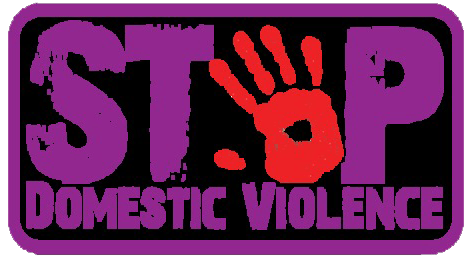Resources Info
Help for Abused
and Battered Women
Domestic Violence Shelters, Support, and Protection
Getting Help for Domestic Violence and Abuse
Why doesn’t she just leave? It’s the question many people ask when they learn that a woman is being battered and abused. But if you are in an abusive relationship, you know that it’s not that simple. Ending an important relationship is never easy. It’s even harder when you’ve been isolated from your family and friends, psychologically beaten down, financially controlled, and physically threatened. If you’re trying to decide whether to stay or leave, you may be feeling confused, uncertain, frightened, and torn. One moment, you may desperately want to get away, and the next, you may want to hang on to the relationship. Maybe you even blame yourself for the abuse or feel weak and embarrassed because you’ve stuck around in spite of it. Don’t be trapped by confusion, guilt, or self-blame. The only thing that matters is your safety. If you are being abused, remember:
- You are not to blame for being battered or mistreated.
- You are not the cause of your partner’s abusive behavior.
- You deserve to be treated with respect.
- You deserve a safe and happy life.
- Your children deserve a safe and happy life.
- You are not alone. There are people waiting to help.
As you face the decision to either end the abusive relationship or try to save it, keep the following things in mind:
- If you’re hoping your abusive partner will change... The abuse will probably happen again. Abusers have deep emotional and psychological problems. While change is not impossible, it isn’t quick or easy. And change can only happen once your abuser takes full responsibility for his behavior, seeks professional treatment, and stops blaming you, his unhappy childhood, stress, work, his drinking, or his temper.
- If you believe you can help your abuser... It’s only natural that you want to help your partner. You may think you’re the only one who understands him or that it’s your responsibility to fix his problems. But the truth is that by staying and accepting repeated abuse, you’re reinforcing and enabling the abusive behavior. Instead of helping your abuser, you’re perpetuating the problem.
- If your partner has promised to stop the abuse... When facing consequences, abusers often plead for another chance, beg for forgiveness, and promise to change. They may even mean what they say in the moment, but their true goal is to stay in control and keep you from leaving. But most of the time, they quickly return to their abusive behavior once they’ve been forgiven and they’re no longer worried that you’ll leave.
- If your partner is in counseling or a program for batterers... Even if your partner is in counseling, there is no guarantee that he’ll change. Many abusers who go through counseling continue to be violent, abusive, and controlling. If your partner has stopped minimizing the problem or making excuses, that’s a good sign. But you still need to make your decision based on who he is now, not the man you hope he will become.
- If you’re worried about what will happen if you leave... You may be afraid of what your abusive partner will do, where you’ll go, or how you’ll support yourself or your children. But don’t let fear of the unknown keep you in a dangerous, unhealthy situation.
Making the decision to leave
As you face the decision to either end the abusive relationship or try to save it, keep the following things in mind:
- If you’re hoping your abusive partner will change... The abuse will probably happen again. Abusers have deep emotional and psychological problems. While change is not impossible, it isn’t quick or easy. And change can only happen once your abuser takes full responsibility for his behavior, seeks professional treatment, and stops blaming you, his unhappy childhood, stress, work, his drinking, or his temper.
- If you believe you can help your abuser... It’s only natural that you want to help your partner. You may think you’re the only one who understands him or that it’s your responsibility to fix his problems. But the truth is that by staying and accepting repeated abuse, you’re reinforcing and enabling the abusive behavior. Instead of helping your abuser, you’re perpetuating the problem.
- If your partner has promised to stop the abuse... When facing consequences, abusers often plead for another chance, beg for forgiveness, and promise to change. They may even mean what they say in the moment, but their true goal is to stay in control and keep you from leaving. But most of the time, they quickly return to their abusive behavior once they’ve been forgiven and they’re no longer worried that you’ll leave.
- If your partner is in counseling or a program for batterers... Even if your partner is in counseling, there is no guarantee that he’ll change. Many abusers who go through counseling continue to be violent, abusive, and controlling. If your partner has stopped minimizing the problem or making excuses, that’s a good sign. But you still need to make your decision based on who he is now, not the man you hope he will become.
- If you’re worried about what will happen if you leave... You may be afraid of what your abusive partner will do, where you’ll go, or how you’ll support yourself or your children. But don’t let fear of the unknown keep you in a dangerous, unhealthy situation.
Signs that your abuser is NOT changing:
- He minimizes the abuse or denies how serious it really was.
- He continues to blame others for his behavior.
- He claims that you’re the one who is abusive.
- He pressures you to go to couple’s counseling.
- He tells you that you owe him another chance.
- You have to push him to stay in treatment.
- He says that he can’t change unless you stay with him and support him.
- He tries to get sympathy from you, your children, or your family and friends.
- He expects something from you in exchange for getting help.
- He pressures you to make decisions about the relationship.


